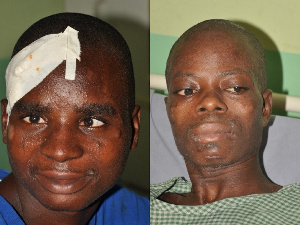Techniques for preventing premature Ejaculation


Premature ejaculation occurs when you ejaculate during sexual intercourse sooner than you or you partner would like or before you’ve achieved satisfaction.
Premature ejaculation is a common complaint. One out of three biological males say they’ve experienced it. It often occurs early in relationships when sexual excitement, anxiety, and overstimulation are common.
When it occurs infrequently, premature ejaculation is not generally a reason for concern.1
Criteria
Premature ejaculation is identified using the following criteria:
- Ejaculation occurs within one minute of penetration
- Ejaculation cannot be controlled or delayed in all or most cases over a period of at least 6 months2
- It causes frustration, distress, and a tendency to avoid sexual interaction
Causes
You’re more likely to experience premature ejaculation when you’re young and still learning about sexual activity and relationships or at any age if you’ve had a long period of abstinence.
Premature ejaculation is rarely caused by any underlying disease, structural abnormalities, or physical problems.
Performance anxiety may be the major cause of premature ejaculation, and talking to your sexual partner(s) about your feelings may help in dealing with the issue. Remember that it’s a common experience. Find ways to relax more, and the problem often goes away.3
If you’re experiencing premature ejaculation, you should consider visiting a urologist. Sometimes a questionnaire like the Premature Ejaculation Diagnostic Tool will be used during the office visit.
Treatment includes behavioral techniques, therapy (such as cognitive behavioral therapy or psychotherapy), and medications.
According to the International Society of Sexual Medicine, the average time to ejaculation is between five and seven minutes.4
Behavior Techniques
A doctor may suggest these techniques to you, but you can also try them on your own.
Self-Distraction
If your arousal levels are getting too high and a climax is beginning, take a deep breath and think about something else—something very boring if possible. You’ve probably heard the pop culture advice, “Think about baseball!”
When you are less aroused but maintaining an erection, you can then continue.
“Stop-and-Start” Method
If you find yourself nearing climax, withdraw your penis from your partner and allow yourself to relax enough to prevent ejaculation.
By starting and stopping sexual stimulation, you can learn to prolong the sexual experience and delay ejaculation.
“Squeeze” Method
This method involves either you or your partner squeezing (fairly firmly) the end or the tip of the penis for between 10 and 20 seconds when ejaculation is imminent, withholding stimulation for about 30 seconds, and then continuing stimulation.
This can be repeated until ejaculation is desired. The stop-and-start method can be used with the squeeze method as well.5
More Foreplay
Stimulate your partner to a state of high arousal before you have your genitals touched. That way, your ejaculation and their orgasm can be achieved at about the same time.
Masturbation
Practice different methods by yourself to learn how your body responds to stimulation and how to delay ejaculation.
Getting to know your feelings and sensations gives you the chance to gain confidence.6
Medications
Either creams or oral medications can be effective for treating premature ejaculation.
Desensitizing Creams
Creams can be used to desensitize the end of your penis. They act like a local or topical anesthetic.
These medications include creams, gels, or sprays such as lidocaine, prilocaine, or benzocaine, which cause reduced sensitivity of the penis.
Thicker condoms can also desensitize you by decreasing sensitivity and therefore stimulation, thus prolonging the sexual act.7
Prescription Medications
Oral medications include selective serotonin reuptake inhibitors, or SSRIs, which are prescribed for use as needed (“on demand”), or, as with paroxetine, as off-label daily dosing.
Phosphodiesterase-5 inhibitors, such as Viagra (sildenafil), may be used effectively if premature ejaculation occurs with erectile dysfunction.
Opioid medication such as tramadol(prescribed off-label) may be considered. A combination of both anxiety reduction and medication can be used as well.
A Word From Verywell
Remember that getting good at sex and overcoming premature ejaculation can take a bit of time. Practice makes perfect.
If you find that things are not improving, then help is available from sex therapists who are experts in this field.
Source: Jerry Kennard





